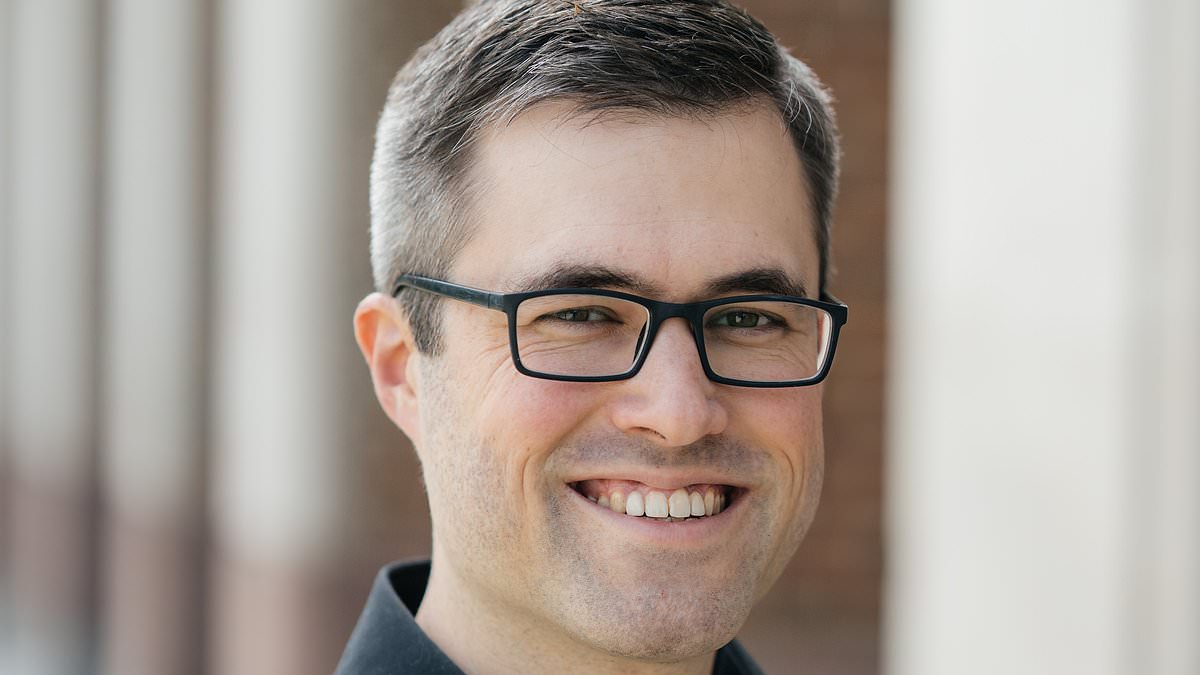New Jersey antifascism professor says he’s been forced to move to EUROPE over rampant death threats
By Editor,James Cirrone
Copyright dailymail

A history professor at Rutgers University who has courses on antifascism said he is moving abroad after receiving a death threats from far-right individuals.
Mark Bray, who has taught at the New Jersey college since 2019, told his students that all of his classes would move online for the foreseeable future, The Washington Post reported.
‘Since my family and I do not feel safe in our home at the moment, we are moving for the year to Europe,’ Bray said in an email to students.
‘Truly I am so bummed about not being able to spend time with you all in the classroom.’
Bray traced the threats against him back to when he was quoted in various news stories explaining what antifascism was after President Donald Trump declared Antifa a ‘domestic terrorist organization’ in a September 22 executive order.
The order came after authorities said the suspect who allegedly killed conservative activist Charlie Kirk was motivated by leftist ideology, though he was never connected to Antifa itself.
Bray contradicted the Trump administration’s description of Antifa as ‘a militarist, anarchist enterprise’ that uses ‘coordinated efforts to obstruct enforcement of federal laws’.
‘It’s essentially a kind of coalition politics of all kinds of radicals, from different kinds of socialists to communists, anarchists and more independent radicals,’ Bray said in the wake of the executive order. ‘There are Antifa groups, but Antifa itself is not a group.’
After these comments, MAGA influencer Jack Posobiec called Bray a ‘domestic terrorist professor’, while someone else shared the address of his New Jersey home.
The Rutgers chapter of Turning Point USA, the group Kirk founded, then launched a petition demanding that the university fire Bray.
The students claimed Bray is a member of Antifa and that he is a radical who wishes ‘violence on them’.
Bray told The Post that he has received three death threats since September 26, one of which threatened to kill him in front of his students.
‘I’m gonna burn your house down and kill you as you come running out,’ read one of the threats obtained by Newsweek.
‘You had better run, b****,’ another email read. ‘WE THE PEOPLE are back and we do not approve of your ideas and teachings. You prey on the weak, turning their brains to mush. Your organization will soon be mush.’
Rutgers said it is aware of Bray’s plans to move to Spain for the rest of the academic year, as well as the petition calling for his firing.
‘We are gathering more information about this evolving situation,’ the university said in a statement to The Post.
Bray himself denied he is part of an Antifa group, but clarified that he does support anti-fascist movements.
The Turning Point USA petition accused him of advocating for political violence largely based on his 2017 book, Antifa: The Anti-Fascist Handbook.
In the introduction, Bray wrote that the book argues that ‘militant anti-fascism is a reasonable, historically informed response to the fascist threat that persisted after 1945 and that has become especially menacing in recent years’.
Bray later gave examples of tactics militant antifascists have used to achieve their goals, including singing over fascist speeches, occupying fascist meeting sites, infiltrating their groups and physically disrupting their newspapers sales.
He has also, in no uncertain terms, said that violence from left-wingers in response to perceived fascist threats is sometimes justified.
He most notably made this argument in the aftermath of the 2017 ‘Unite the Right’ white supremacist rally in Charlottesville, Virginia.
Heather Heyer, a 32-year-old counter-protestor, was killed when a man drove his car into the crowd.
Bray was a Dartmouth professor at the time and 100 of his colleagues rallied around him, though the university’s president condemned him for ‘supporting violent protest’.
Bray has taught courses on terrorism, human rights, modern Germany and communism while at Rutgers.
He said he wants to return to the US soon, but will be prerecording his classes for now.
‘I’m hopeful about returning, and I’m hopeful — and I say this as a history professor — that someday we will look back on this as a cautionary tale about authoritarianism,’ he said.